#i know no one cares about this
Explore tagged Tumblr posts
Text
One thing that I always try to do when I write my fics is getting the personalities of the PF members right. I don’t know if I achieve it but I try very hard to make the way they behave believable, even if I’m writing one of my unconventional AUs like the Greek gods one or the zombie apocalypse one.
Given that Syd and Rick are always the leads I’m particularly careful about them but it’s not easy due to how private they both were and how little we know about them — compared to the others, that is. Syd is especially challenging because the accounts about him tend to be wildly different depending on who’s speaking, but hopefully my Syd is a complex human being with feelings and not a disrespectful caricature. Rick is also challenging in his own way because he was never very keen on expressing his thoughts out loud but again, I hope my Rick comes across as a nuanced person.
#I know no one cares about this#but it’s important to me and I wanted to express it somewhere#it’s one of the reasons why my current fic was so difficult to write#I wanted it to feel more or less realistic but wasn’t sure if I’d be skilled enough to make it work#fic writing
5 notes
·
View notes
Text
My opinion on "self diagnosing"
...and the nightmare of trying to go to therapy
[Part 1/3]
Why I care so much about this topic:
For many, mental health might not be something they think about a lot. For me, though, it has been a very important topic since at least 2019.
I've met my fair share of "self diagnosed" people, fakers and professionally diagnosed ones during the time since. This series is based of my experiences with those people, but also the struggles of someone who's mental health has been bad for years, but couldn't go to therapy so far.
Topics I'll talk about
Part 1: Fakers
Part 2: The dos and don'ts of "self diagnosing"
Part 3: Pro/Con self diagnosing + Getting help
Fakers
Table of content
TikTok, Insta and Co; the impact of social media on mental health
Munchausen Syndrome, Nocebo Effect and more; possible explenations for faking?
All in the name of education and destigmatisation?
Why faking mental health problems is problematic
Faking or not? Should "fakers" be called out?
(This is an extremely long post. If you're not interested in that, feel free to move on and/or skip parts of it.)
Disclaimer:
I'm just trying to put my own perspective on this matter on here, because it has been a topic I've wanted to talk about for years. I'm not a mental health professional, nor do I have any professional education about the matter. This is not a scientific paper, analysis, essay or similar.
It is solely based of my subjective view and opinion, as well as my own experience, research and observations. I'm not speaking for everybody of the mental health community. Some might share my opinion, some won't. And that's fine.
I've made this series for the purpose of friendly discussions and similar. Do not harass anybody because their opinion differs from yours. Try to understand the other's perspective instead. Thanks.
Fakers
When talking about "self diagnosing" the first thing that gets brought up, as an argument against it, is the amount of fakers it brought. People who pretend to suffer from mental illnesses and/or disorders, in order to gain attention. Be it positive or negative. So I thought it would make sense to cover it first.
TikTok, Insta and Co; the impact of social media on mental health
I think by this point it's a well known fact that social media has a massive impact on mental health. Especially on children and teens. Be it the faked Instagram pictures, that promote an unhealthy figure (leading to EDs), or the countless TikToks of people claiming ordinary behavior as OCD, anxiety, etc. But Tumblr doesn't get away from those problems scrot-free either.
In this part of my "essay" I want to go through some of the reasons why social media has such a huge impact on mental health and why certain sides are more prone to become "faker hotspots" compared to others.
First, let's try to tackle the question of why we're all so prone to be influenced by social media. Including our mental health.
Humans are social animals.
No matter how introverted and antisocial you are, you'll always be influenced by others. Wether you want it or not. Even if it is entirely subconscious.
No piece of art came without any inspiration or influence of other pieces of art, no mind blowing discovery came without building upon what others have found out.
Before the internet was a huge thing, social circles and therefore their influence on individuals was a lot smaller. Social media, however, makes it possible to connect with people all over the world. Mostly even completely anonymous.
The pressure to fit in and go with the newest trends doesn't come from a small circle of friends and family, but from a global scale this way. If you present your online self in even a slightly bad way, people all over the world are able to cyperbully you for it or similar.
"Going with the stream", trends or similar became one of the only ways to stay popular and liked by the internet. The rush of dopamine going through your brain whenever you see someone liking a picture isn't a mythos. It can boost your confidence, but it also puts more pressure on you. More pressure to be perfect. More pressure to be the hottest. The best looking. The most talented. The most extreme.
Which leads to many editing their pictures and videos to fit the social expectation to be perfect in every way. You have to make sure that every single flaw on your body is taken care of and erased and every "good" quality of your body is exaggerated to an unnatural degree. You only show your most expensive piece of clothing on screen, only show the high lights and best moments of your life. All in the name of Fame and that dopamine rush that comes with attention.
If you now expose impressionable children and teens to those pictures, videos, etc, it is no wonder that they assume this is the norm.
Children are extremely easy to manipulate, because of their lack of life experience and their brains being far from fully developed. If you constantly tell a child the sky is green and not blue, they will believe you at some point.
Teens might be better at understanding that those are unreal and inaccurate norms shown on the internet. However, their need to fit in, have social validation, "be special", find an identity or similar is way bigger than during any other time of life. Your body changes drastically and so does your brain. The chemicals and especially hormones of your body are on a constant rollercoaster during puberty. All of which leads to body dysphoria and other mental health problems being extremely common. Especially if fueled by social media "norms".
All of that and more has most likely also lead to the increase of people, especially teens, faking to have mental health issues. So let's find some potential reasons for what exactly makes certain social media platforms to "faker hotspots". For that, I'll use TikTok as an example and I'll quote from a Reddit comment I once made, which got a lot of positive feedback. The comment was to answer a question of another user, who asked:
"i dont understand how tiktok became the faker central. is it because its the most popular amongst younger people, like tumblr was a few years back? easier to reach a wider audience? very curious."
To which I answered:
"Probably, yes. [...]
TikTok gained a lot of popularity and many downloaded it during the pandemic, especially amongst teens (myself included). Most likely because people were bored and looking for ways to socialize or get a distraction from all the bad things happening in the world.
The short video format makes it very easy to make a lot of content in a short amount of time. Especially because I've noticed that app seems to be build on quantity over quality. I'm not saying that all videos on there are low quality content, they're plenty of highly talented people on there to prove otherwise, but I've seen my fair share of "lazy" videos. Which, sadly, get a lot of likes, shares, etc as well, making them more and more popular. And pushing them on your "for you page" as well.
All of that makes it very easy to only scratch a complex topic, such as mental health, on a surface level. Leading to a lot of misinformation spreading very fast, because many will take it 100% serious without a second thought and, again, push it onto fy pages, etc. Which, just like you said, make it easier to reach a wider audience.
Another thing that most likely makes TikTok such a "faker hotspot" is the fact that it is very easy to get stuck in an echo chamber. The algorithm will quickly adapt to what you like, comment on, share, search, etc. Meaning that, if you only like a few videos of fakers, chances are high that you'll only see that kind of content on your fyp.
Combine that with teenagers who are in general more prone to have identity issues, in need for social validation, etc and seemingly "perfect" opportunities to get those things via faking mental illnesses, and you end up with... well... "faker hot spots". On top of that, if you keep being told that you're something over and over again, the chances are higher that you'll believe it as well. Especially if you're already struggling with mental health issues due to the pandemic, your relationship with your family, body image issues, etc. [...] "
Social media does have it's bright sides, yes, but ignoring the dark sides isn't helping anybody. Especially those who suffer because of it.
Munchausen Syndrome, Nocebo Effect and more; possible explenations for faking?
First, let's define what Munchausen Syndrome and the Nocebo Effect is, so we're all in the same boat here. I'll quote good definitions I found on the internet:
"Munchausen syndrome (factitious disorder imposed on self) is when someone tries to get attention and sympathy by falsifying, inducing, and/or exaggerating an illness. They lie about symptoms, sabotage medical tests (like putting blood in their urine), or harm themselves to get the symptoms. Diagnosing and treating Munchausen syndrome is difficult because of the person’s dishonesty."
"By definition, a nocebo effect is the induction of a symptom perceived as negative by sham treatment and/or by the suggestion of negative expectations. A nocebo response is a negative symptom induced by the patient’s own negative expectations and/or by negative suggestions from clinical staff in the absence of any treatment."
Now that we all have a very basic understanding of those two things we can start to work with them.
Many people who talk about the "faker pandemic" propose that said fakers might have Munchausen Syndrome. I don't know anywhere near enough about this condition to give a professional opinion about it, but I can give a unprofessional guess. I think that some fakers, especially those who can't stop coming up with and creating new issues, as well as those who obviously exaggerate their issues based of misinformation, do show typical symptoms of Munchausen Syndrome. I'm not diagnosing them, I'm not saying they most definitely suffer from it. But I can see where those who argue for this hypothesis are coming from.
Something I believe might be far more likely than Munchausen Syndrome, however, is the Nocebo Effect. I don't think everybody who gets called out as a faker doesn't suffer from anything. They might have another mental health problem that lead them to "faking". I understand how easy it is to become extremely misinformed and accidentally spreading misinformation, simply because you don't know it any better. I know how easy it is to get stuck in an echo chamber on the internet, being surrounded by people who keep telling you there's something wrong with you. And, as previously mentioned, I know how easy it is to manipulate especially children and teens into believing things. So I see it as far more likely that "fakers" fell victim to the Nocebo Effect and can start to actually develop the symptoms of something, because they believe they suffer from it.
They may have exaggerate and pretended to suffer from mental health issues at the beginning to gain attention, yes. But I believe that far more of them started to actually experience those things. Which is why, I think, there have been so many reported cases, from mental health professionals, of people developing tic disorders due to TikTok and similar.
And when it comes to those who are really just faking those symptoms, I once again think it has it's roots in peer pressure, self identity issues, etc, as I mentioned in the previous "chapter".
All in the name of education and destigmatisation?
Every time someone brings up this debate of self diagnosing, one argument gets thrown around over and over again: "I'm just trying to spread awareness and educate people!"
Here are my personal thoughts on that:
I believe that people on the internet talking about their mental health problems has helped towards destigmatize them and bring awareness. Many of my friends who never considered going to therapy, because they were too afraid to get judged for their problems, are now more open towards that idea.
If you get professionally diagnosed with something it can be extremely helpful to connect to others and realize that a diagnosis isn't a death sentence. It can also help a lot to find new copeing mechanisms and find solutions to common problems amongst people who suffer from those issues.
But even if you aren't professionally diagnosed, connecting with others and using free resources to help yourself to get better can have an extremely positive impact.
I don't think it matters if you're diagnosed or not, when you're suffering from a mental health issue and you look up solutions to help yourself. If you've recently lost a loved one and feel sad because of it, it can help to look into everyday copeing mechanisms people with depression use. If you get extremely fidgety in situations that make you nervous, I don't think there's any harm done if you look up how people with ADHD deal with their hyperactivity.
A common argument against that is "undiagnosed people are taking away resources from diagnosed ones". Which honestly isn't true in most cases.
If the sources you're using are publically available, such as the internet, books about the topic or similar, you're not taking away any resources from diagnosed people.
One thing you'll have to keep in mind is that most mental health institutions which offer therapy priotice people who have more urgent and extremely problems, over those who don't. So even if you seek out therapy because of extrem stress due to your current situation or similar, you're not taking away any resources from diagnosed people. Or people who "have it worse".
A friend of mine who suffered from a servere ED immediately got help, no questions asked. Another friend who got diagnosed with PTSD had to wait slightly longer, but got help as soon as possible as well. Meanwhile someone I know who only suffered from mild depression and anxiety had to wait for about a year to even get a first therapy appointment.
And I'm sure people who don't suffer as extremely as others do tend to seek out help these days more than they did before. Simply because of the subject not being such a huge "taboo topic".
However, there is a fine line between destigmatisation, education, etc and achieving exactly the opposite (by accident).
I like to imagine any kind of "taboo" and extremely stigmatized topic as a hill. At first, people bringing more awareness to it, fighting for their rights, demonstrating for it, etc, helps to go up the hill. The more people join those movements, the more attention is brought to it. And the more education, awareness, etc is brought to those topics as well. People become less afraid of talking about them, etc. However, at some point the peek of the hill is reached and everything they wanted to achieve is achieved. Yet, people still want to keep going. People still want more and more and more, leading to extremists groups forming and so on. And it only takes a few loud extremists, misinformed or simply rude people to re-stigmatize the topic. "Falling down" on the hill again.
I'll take "climate change" as an example to explain what exactly I mean with that. Greta Thunberg helped a lot with her climate activism to bring awareness to climate change and the impact of living unsustainable on our planet. Thousands of Fridays For Future demonstrations were held all over the planet and this worldwide issue gained a lot of attention. Politicians got pressured into changing things and making plans and statements about climate change, pollution, etc. Many of those things lead to positive results.
But some of those climate change activists we're happy with just that and started to use more extreme ways of protesting. (The "Last Generation" is a perfect example for that.) And because of those few, loud extremists, the entire movement seems laughable these days, with many people becoming more negative towards it.
The same thing, I believe, is happening with mental health issues as well. At first more awareness had a positive impact, but because of how many people spreading misinformation, or faking mental health problems for attention, it became more stigmatized again. Leading to many being too afraid to seek help and talk about their problems again, fearing they'll immediately get judged and called "fakers".
Why faking mental health problems is problematic
Besides all of the reasons I've mentioned earlier, such as misinformation, stigmatization, etc, they're also other problems caused by people who fake mental health issues. Here, I especially want to focus on service dogs and the impact faking has on mental health professional and people who seek out help.
Let's start with service dogs. Service dogs are specialized dogs, trained for performing different tasks, in order to make life easier for their owner.
Because of their special training, they're extremely expensive and a privilege not everybody has. However, they're essential for some to function in day to day life and/or not get in dangerous situations.
A service dog for a blind person may be trained to help them navigate traffic or crowded places. One trained for wheelchair users might help them to pick up stuff they dropped on the floor, or reach things the owner can't. One trained for diabetics usually detects a too high or too low blood sugar level and can alert the owner.
Likewise, service dogs specialist for mental health issues also help their owners in various different ways. A service dog might be trained to help with intrusive thoughts and stop the owner from self harming behavior. Or they might make a person with severe anxiety help to feel saver and protected, being able to find a quick exit if needed.
They're trained to stay calm in situations that would usually be extremely stressful to ordinary dogs. Which is why not every dog is suited for this kind of job.
I can understand that a pet can act like an emotional support animal. I get that some people would love to take their pet everywhere, even in places where they aren't allowed. Service dogs owners get this privilege. But needing constant assistance (in the form of a service dog) on a day to day basis because of your (mental) health isn't one. If a service dog gets distracted from their job by a non-service dog/animal, it can lead to dangerous situations for both the owner, as well as the dog.
I've never experienced my next points and I haven't seen many talk about it either. However, I have heard of some cases which is why I bring it up.
Some mental health professional apperently get heavily misinformation about mental health because of them searching for resources on the internet. Some even get stuck in echo chambers themselves, similar to what their clients might experience. I can only imagine what happens if those professionals (accidentally) treat their clients with wrong methods due to this.
I also wouldn't be too surprised if this entire dilemma leads to people who seek out help not being taken serious. Especially if they come to therapy with a suspicions of a mental health problem that might be worth looking into.
Faking or not? Should "fakers" be called out?
In my opinion, yes and no. I don't think you can nor should judge anybody based of their internet presence alone. After all, what they post is most likely a scripted narrative.
I also don't think that you should judge people based on their appereance (e.g. alternative style). Do many of them dress the way they do to gain attention and see a mental health issue as a fun and quirky "add on"? Yes, absolutely. Does this automatically mean that every person with an alternative style who talks about their mental health issues is faking? I don't think so.
If you know someone who you believe is faking mental health issues in real life, instead of bullying them, harassing them or similar, I think a far better approach is to educate them. Show them the harm they do and maybe even get professional help for them.
Be kind, be understanding and try to see where they're coming from and why they're faking something so serious. Especially if they don't seem aware of the harm they're causing.
However, I do believe that fakers should be called out if they spread misinformation and you should kindly correct them. Even more so if you have scientific facts and studies to back your claim up, being able to site your sources when asked.
Part 2: The dos and don'ts of "self diagnosing"
Part 3: Pro/Con self diagnosing + Getting help
#I know no one cares about this#but I might as well post this “essay” I wrote a few weeks (or sth like that) ago#mental health#self diagnosis#my commentary
4 notes
·
View notes
Text

I fear someone else has beaten me
#spotify#spotify wrapped#mili#I know no one cares about this#but ever since I started using Spotify I wanted to be this bands literal Number One listener#Last year I was 0.5%#a friend said they managed to be like 0.001% on one of their artists#and I've seen a post where it's just straight up 0%#I WANT TO BE THAT#I WANT TO BE THE BEST#I WANT TO BE THE NUMBER ONE#I've been their fan since conception#I swear it's my duty to be their number one fan at this point#thought I did good this year#but it looks like I need to go MORE next year
2 notes
·
View notes
Text
Katniss is such an unreliable narrator. She says "Then something unexpected happens. At least, I don't expect it because I don't think of District 12 as a place that cares about me" girl you deliver strawberries to the Mayor, you hunt and trade for the district, when you fell at Prim being chosen someone caught you, when you went to Prim people parted for you, when you volunteered EVERYONE stopped. Idk how to tell you but I think you're a pillar of the community.
#katniss everdeen#the hunger games trilogy#the hunger games#primrose everdeen#hunger games#batcavescolony reads the hunger games#suzanne collins#'now it seems i have become someone precious' NOW? GIRL BFFR you're their hunter girl#and this isn't negative just bffr girl#your WHOLE DISTRICT did the three finger salute that you yourself says means admiration thanks and goodbye to someone you love and on top is#old a rarely used. your WHOLE DISTRICT decided in that moment that they needed to bring back this sign of respect for YOU#...................................................................#idk why some people are thinking i mean this as negative i don't she is unreliable but its not intentional. like when Peeta heart stoped in#CF she doesn't know what Finnick is doing at first cus she doesn't know off the top of her head what cpr is. she also thinks Peeta after the#reaping is acting for the cameras. he isnt we dind out later his mom basically told him Katniss was gonna win and he would die. obviously#shes not doing it on purpose shes just for lack of better words uneducated? as in she doesn't know everything shes not omnipotent#so when Plutarch (? second games guy) shows her his mokingjay hiden watch shes like *wtf that's weird?* then the people traveling to#district 13 show her the mockingjay cookie and explains it and she then goes on the difference between his watch and their cookie#and why does eveyone act as if district 12 is as bad as the capital? they CANT help Katniss and Prim in the way you want. they cant give#them food. none of them have any! and im not putting iton Katniss but they hid they needed food so they could stay together. it sounds like#some of you are in this our world mentally of what people do after a loved one dies (brings food constantly checks on them etc) district 12#cant do that. they dont have food and they're all suffering. you cant give someone food when you have none to give. then theirs the fact#that peeta DID help. Peeta buring the bread and tossing some to her then taking a beating from his mom is a HUGE thing in the books.#he used his resources to help her like you all said someone should.#district 12 DID (rip) care about Katniss before the hunger games. why do you think she was allowed to hunt? or how her trades were good#these are the little ways 12 can shows Katniss they love her. but again Katniss doesn't see this and YES its because she had ptsd before the#hunger games as well. i swear some of you make it seem like d12 was all living a life of luxury and glaring down at Katniss.#other things that show Katniss is in hight standing with at least her people of d12 is her dad was known enough through d12 for peeta dad to#comment on his singing along with his commenting on her mom. also her mom is a healer in the community. yeah her parents arnt the top but#of d12 but they are/were definitely high staning in the Seam.
34K notes
·
View notes
Text
So I rp with my partner in discord and we're doing this soulmate clock au with their Sam Winchester and my male oc, Ben White, and it is fucking breaking my heart. We've rped these characters together before and every time they're drawn to each other but this time they just keep missing each other!! They're keeping secrets and Ben is a prickly pear who has trouble connecting and Sam is on the crazy train. Aaarrgghh. Just be soulmates you two!! Stop being awkward!!!
0 notes
Text



my favorite pieces from 2024
#artists on tumblr#thank you so much for all the support this year#it's been a rough one for so many i know#the fact that people still have the energy to care about my art#and support independent creators#makes me so happy#wishing the very best for all of you#if it's been a difficult year know you're not alone in that#hopefully next year will be kinder#spend time with your loved ones and cherish them#take time for the things you enjoy#if you're able to
8K notes
·
View notes
Text
tempted to start streaming sims again, or at least record myself like, recreating zillow houses or something lol
also tempted to start the 100 baby challenge now that the new pack is out. buggy as infants are, it was always SUPER annoying to deal with partner jealousy + the dating app will introduce more variety
#i know no one cares about this#i havent streamed anything but wow in a while just because its so hard to set up and find time for it#its also just hard to do it on my own
0 notes
Text
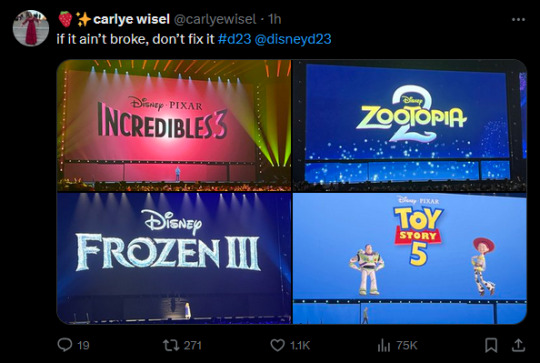
No shade to OP as a person but believe me, this is a sign that something is DEEPLY fucking broken. Like they announced ONE new IP out of like eight films. I genuinely think within the decade they're just gonna stop making original films all together. That's what they learned from Elemental and Wish, just don't make anything new if you can help it.
Like they've unironically turned into what people pretend Dreamworks is, a sequel mill. The real downside is that Dreamworks actually knows how to make a good sequel, Disney never really figured that one out, bar a couple of outliers, and I have no faith in them pulling any of these off. Absolutely soul-crushingly pathetic. Thank god other animation studios exist.

This is the saddest shit I've ever seen, truly.
#the only one of these I care about seeing is Hoppers solely because it's the only original film#I couldn't give less of a shit about the rest of these they're all going to be bad#this is legit embarrassing I would be fucking embarrassed by this if I were them#but I care about like...art and not just making money so you know
9K notes
·
View notes
Text
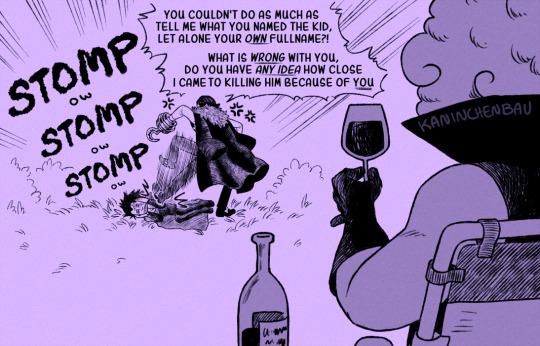
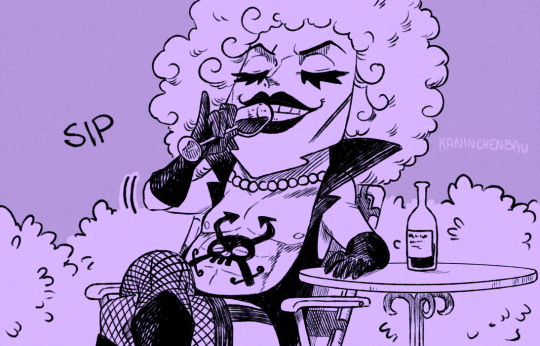
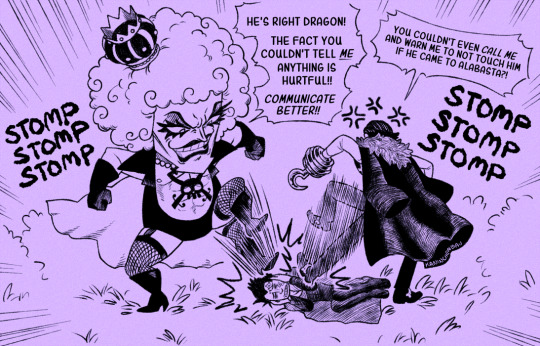
A h-heartfelt reunion..?
Bonus
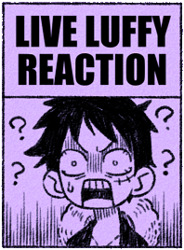
#Sir Crocodile#Monkey D Dragon#Emporio Ivankov#Dragodile#Crocodad#My art#One Piece#We're not gonna talk about the work I should be doing rn I have Severe Procrastinitis and I'm doing my best okay#Alternative version where it was both Crocodile and Garp beating Dragon's ass before Iva-chan joined in but that was too much effort lmao#I'm a believer in Dragon being a Wind Logia so don't worry guys he is 100% taking this beating intentionally#He knows what he did and he's dealing with the concequences of his actions. With grace.#You know I realize Iva-chan should be two whole meters taller than Crocodile but we're just gonna ignore that#Look Iva-chan taking Crocodile's side and being like ''Crocoboy is right you fucked up bad Dragon'' brings me joy#And for real I've been wanting to draw this for months. But never did because I had other shit to do. Which I still do#But. You know. Sometimes you need to draw a shitpost. It's ✨ self-care ✨#And appearently One Piece shitpost comics have become the thing I draw for myself on occassion
17K notes
·
View notes
Text
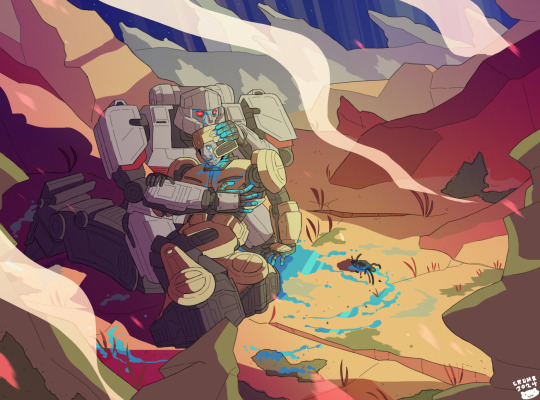
"Why did I do that?"
close up

#transformers one#transformers#megatron#bumblebee#b 127#maccadam#megatron the terrible and his son B127#geniunly it would be so horrible if megatron ends up being the one to rip out bees voice box#like HES the one who found him in sub level 50#he knows#why would he do that to him#its geniunly so sad that they gave bee this backstory and that hes going to lose his voice#especially since they were once friends#well#i mean dee was bees best friend but bee was just the yellow thing dee tolerated LOOL#but still#it makes me so sad to think about#i would like to think that the smallest part of megatron cares even a little#not enough though
6K notes
·
View notes
Text
it's very important to understand how a personality disorder diagnosis functions in the psychiatric system, even if you identify with the diagnosis or find it useful.
personality disorders on your medical record will be used to discredit anything you say or do. they indicate "don't bother listening to this person; apply treatment regardless of their wishes but also they're probably manipulating/attention-seeking so maybe don't bother treating them". needing support becomes attention-seeking. behaviors that would be treated + supported in someone without this diagnosis are ignored or treated as manipulative. providers are instructed to "withdraw warmth" (a real thing in the DBT provider's manual, btw) in response to self-injury or suicidal ideation.
if you have been dx'd with a personality disorder professionally, you likely understand this.
now, here's the important part: this is not an issue of 'stigma' against a politically neutral, pre-discursive True Disease which is being Unfairly Maligned. these diagnoses were formulated based on the idea that some patients cannot be trusted, that some patients seek care too much. they are applied to patient charts as a justification for withdrawing care or as a dismissal of someone "not getting better" fast enough. in the uk, they are often employed by the nhs to shame or problematize people who use large amounts of nhs resources, arguing that receiving a lot of care through the nhs is a negative behavior stemming from a disordered personality.
there are elements of personality disorders which resonate strongly with many people, including myself, but you need to be clear-eyed about the origins + functions of this diagnosis. as a whole, they were created + function as ways to discredit + mistreat noncompliant or "difficult" patients. 'reclaiming' them is not going to change how they function systematically- it is going to make it easier to engage in this systematic neglect by evoking 'ableism' or 'stigma!' when people question the utility or application of the diagnosis.
#psychiatric abolition#before ppl come for my throat#know that i was prof dx'd with bpd + ocpd + both of those dx's were used to neglect + abuse me#but the doctors kindly reminded me not to Stigmatize Myself :) it's Okay To Have Noncompliant Brat Disease Charlie <3#but anyway we will be withdrawing care + writing about u being manipulative for advocating for yourself#but that's Not Your Fault :) You Have A Disease#these were doctors at some of the best hospitals in the country so do with that what u will#not to mention the pathologization of trauma inherent to this but anywayyy#this post brought to you by buy one get one free monster energy
4K notes
·
View notes
Text
I love dunmeshi for the like.. built in horror of consumption. Like they eat to survive, they eat to honor their prey, they eat to possibly mourn someone. Laios eats monsters because he wants to learn more about the things he loves, Senshi eats monsters to feel included in the ecosystem because he didn't fit in with the outside and with most creatures in general, Chilchuck DOESN'T eat as much as he could because eating too much could kill all the party members, Marcille eats monsters and hates it but she still does it because she'll die before she could save Falin.
#i like it when food is depicted as more than food#like its insane to want to eat things you love but also the act of knowing more about what you love is also valid#i think senshis backstory really got to me just because he eats monsters cause hes lonely#but also he eats them because he hopes one of them will taste like that one soup#because then he'll know whether he ate someone he cared about or not#i feel like you could get smn if you compared senshi and laios's opinion on food but i don't want to get into it#dungeon meshi#dunmeshi#delicious in dungeon
5K notes
·
View notes
Text
lesbians are so awesome I wish they were real

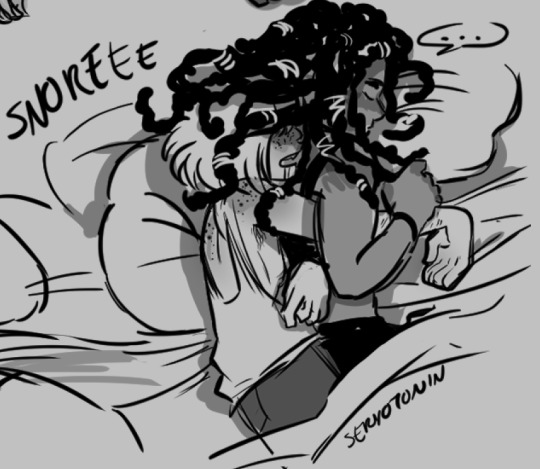
#your honor i love them#they are happy#and sleepy#and in love#oh hey happy lesbian day too idk when it is but it is!!! let's go girls#art#fanart#my art#original art#splatoon#splatoon art#splatoon fan art#splatoon marina#marina splatoon#marina#splatoon pearl#pearl splatoon#pearl#off the hook#pearlina#pearlina splatoon#splatoon pearlina#pearlina art#human au#headcanons#au#RAAAAAAAAHHHH#csp#forgot that one#I apologize for the lack of lock care. I don’t know anything about locks. just the way they look 😭
6K notes
·
View notes
Text
Being someone who read Under The Red Hood and came out with the firm belief that, for Jason, it's not about killing Joker, it's about Jason wanting proof Batman would choose him over the Joker (bc shelia chose the joker). Makes seeing any other media where it's all about just wanting the Joker dead is a teeny bit frustrating. to be honest
Jason could've killed the Joker himself, really, really easily. Jason kidnaps the Joker before the confrontation. I can't open my comic for a reference right now, but it felt like he had the Joker for quite a bit before the confrontation. He had him. He beat him up with a crowbar. He had every single opportunity to kill the Joker himself, but he didn't because that wasn't his goal. Make no mistake, he did plan for the Joker to be dead by the end of it, but do you see what im trying to say here
Edit: If I knew this post was gonna get 1000+ notes I would've tried to word it better or something, this was a rant I made on the way to the grocery store 😭
It's not about making Batman kill either. When Batman says he won't kill, Jason adjusts and goes, 'Let ME kill the Joker or kill me to stop me' instead. The test is all about Batman choosing him. The whole final confrontation is Jason's first death again. The parent, The Joker, and the explosives. It even ends with Jason unable to move as a bomb goes off right next to him again because the parent didn't choose Jason. And instead tried finding an option that'd benefit them and (consequencely) letting the Joker walk, again, lol, lmao <-in agony
#the final confrontation was basically his first death again#and YES he Does want the Joker dead#and it would've been really really nice if Batman was the one who did it#but when batman made it clear he wouldn't kill the joker. Jason easily switched to saying “LET me kill the joker” to accommodate#because he Wanted batman to pass his test#he gave a test to dick too. and technically tim but it wasnt the family test it was a different one so it doesnt rly count#AFTER utrh and the reveal and the batarang you can go hog wild about it. i care less about it then#granted i do believe they make jason more scared of the joker after it at some point#i guess because hes a bit too willing to kill the joker and ive heard jason wasnt meant to live after utrh#my watsonian explain for that is he was so fixated on his plan he cpuld override his fear. or maybe the pit. either work#i prefer the fixation bc i dont like the explanation that the pit was the /only/ reason he could get all plan together and done#BUT THATS UNRELATED!!!#dc stop putting the joker in jason stories im begging you please please please. lock him in a vault for the next 20 years or something#it Cpuld be good and i understand. but also. after so long of people that dont know or go for jasons need for family and parents#that love him and he can trust#the joker starts to feel like?? hm. words. a cop out? oh haha its that guy that killed him woagh hes here#i bet you dont even know that jaybin got beat until unconsciousness by an angry mob#while asking batman to save him only for batman to have to walk away#anwya. where was i going with this#i think i got off topic#jason todd#dc comics#batman#ADDED AN EDIT. SORRY. this post has been haunting me it keeps me awake. what if people misunderstand#they cant read my tags where i ramble more depth. thisbis the only option#EDIT EDIT: hiii#removed the sentence abt jason having the joker for several days bc i misremembered some things#go read its-your-mind 's addition instead also#ok no more i wont edit this post anymore i promise
3K notes
·
View notes
Text
i’m just gonna come out and say it
if luke comes back in a future book, i hope percy is taller than him now.
#like a good few inches taller#if you can’t relate to this thought process then keep on scrolling#call me toxic#call me petty#call me stupid#i don’t care#i know damn well that height doesn’t matter and doesn’t make one man better than another#it doesn’t represent dominance#percy is the better man because of his bravery and his loyalty and his unwavering goodness#but i’m so loyal to percy that literally anything that gives him any sort of edge over luke gives me satisfaction#LEAVE ME AND MY PETTINESS ALONE#unless you ageee#then please join the club#i swear to gods if even one person calls me toxic or says i’m encouraging double standards i WILL delete this app and im not bluffing#THAT IS NOT WHAT THIS IS ABOUT#YOU DON’T UNDERSTAND#short kings i love you don’t even worry#this is between me and luke#and percy and luke#percy jackson#luke castellan#pjo#percabeth#heroes of olympus#percy jackson and the olympians#annabeth chase#rick riordan#riordanverse#pjo headcanons
2K notes
·
View notes
Text
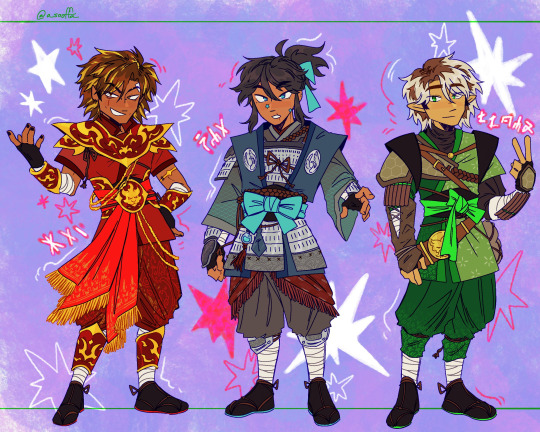


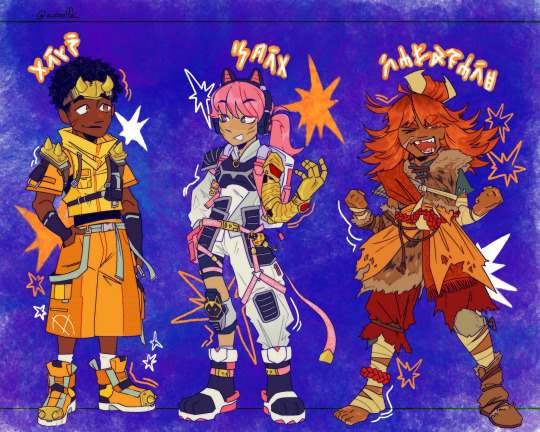
obligatory drop of my ninja designs before they eventually become irrelevant to me and i redo them
#ninjago dragons rising#ninjago#i'd add all of their names individually but im way too lazy for that#ask me about the ninja please#i know no one cares but please brother#i hate tumblr image compression...#my art
2K notes
·
View notes